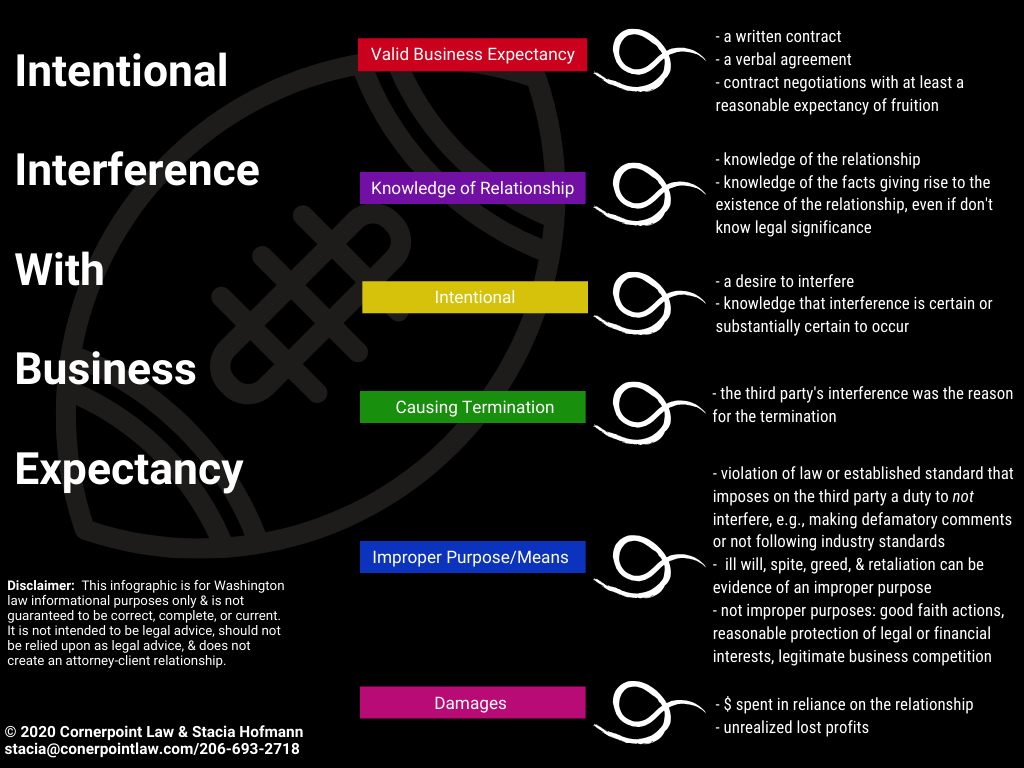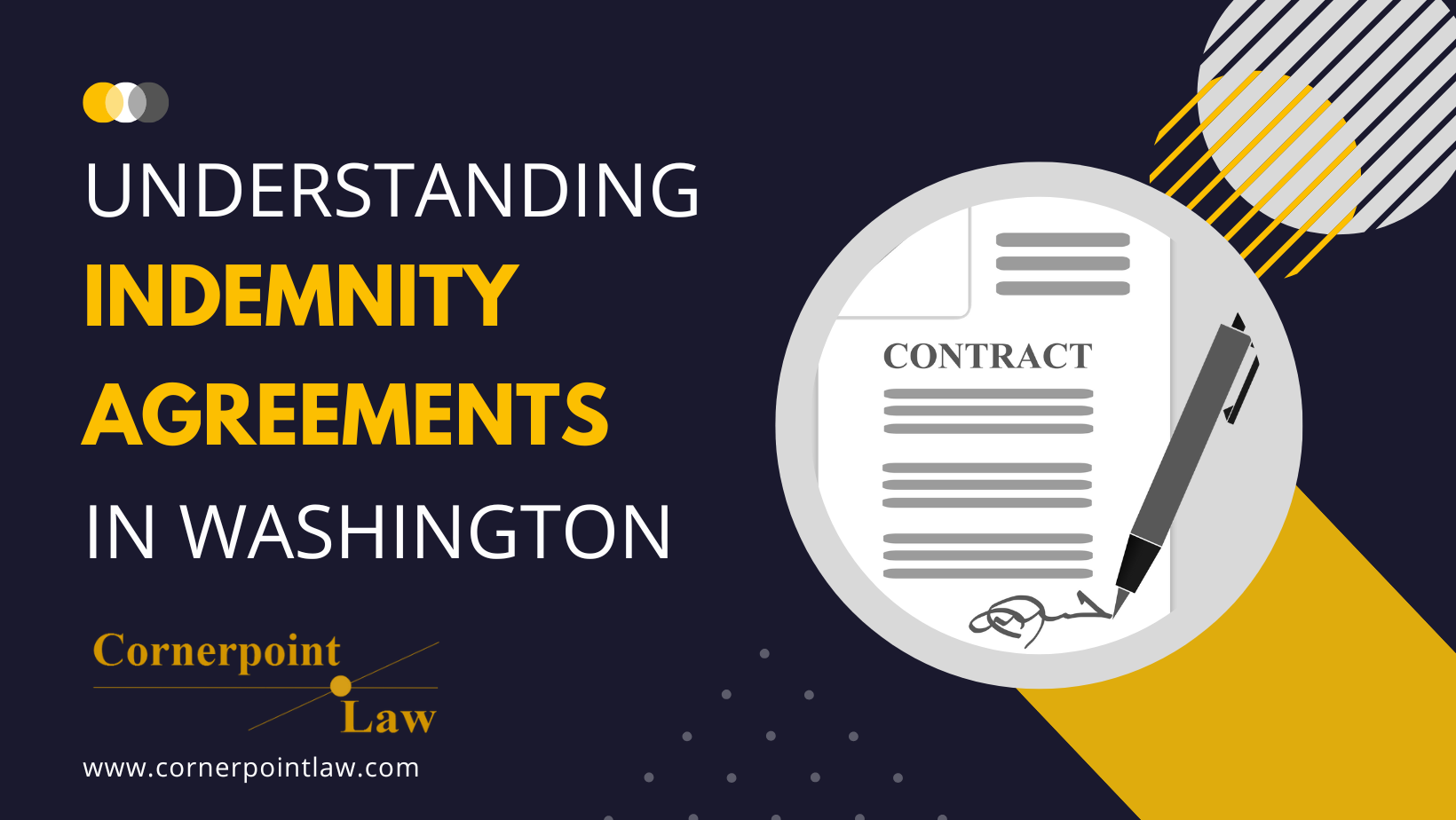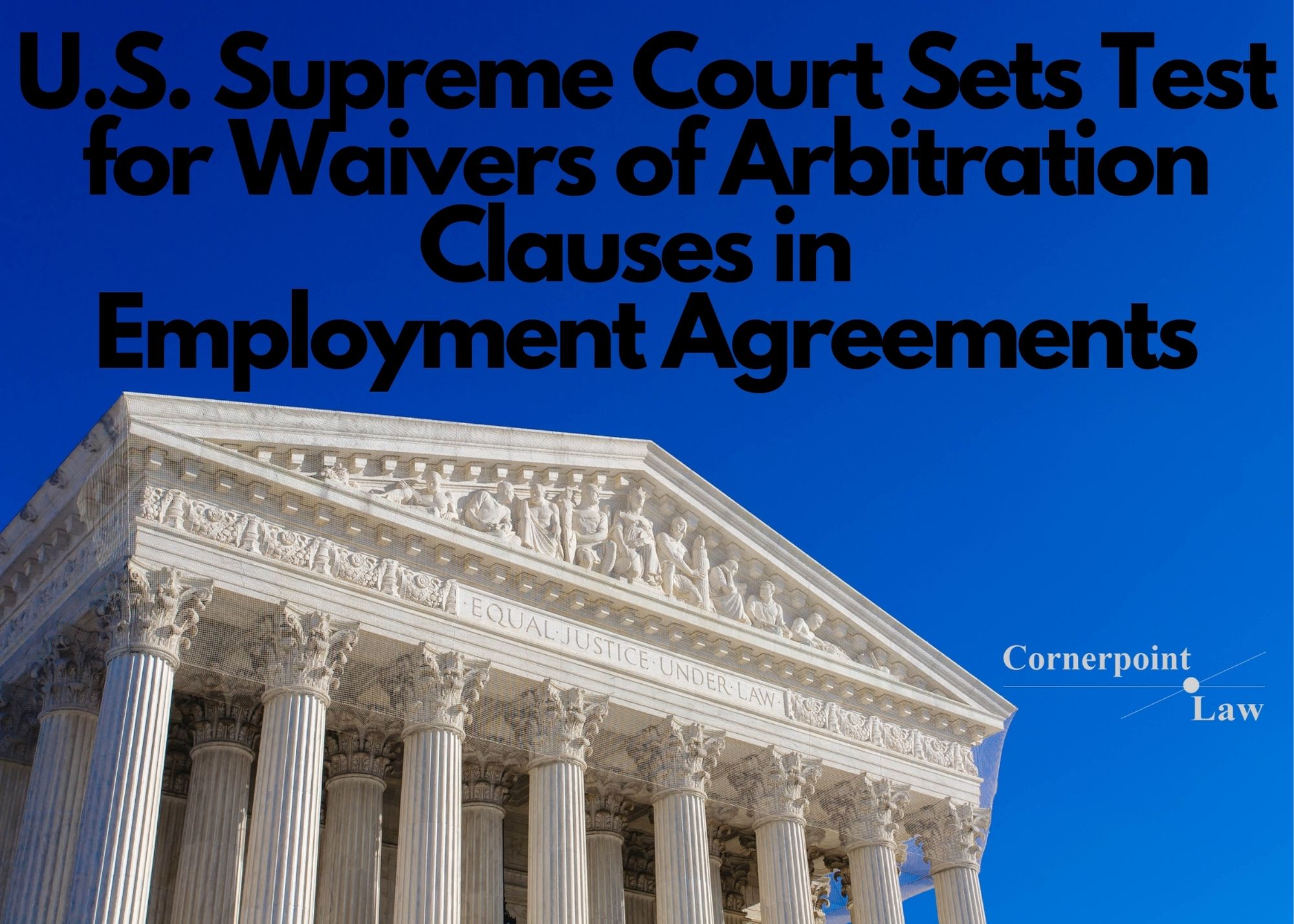Flag on the Play! Intentional Interference With a Business Expectancy
May 27, 2020
Unauthorized use and/or duplication of blogposts without express and written permission is strictly prohibited. Excerpts and links may be used, provided that full and clear credit is given, and with appropriate and specific direction to the original content.
The author of this post can be reached by phone at 206-693-2718 or by email.
Pass Interference or Clean Interception?
By Stacia Hofmann, Small Business Attorney & Certified Risk Manager
Businesses strategize, make plays, and move the ball down the field with the hope of reaching their financial goals. With the COVID-19 pandemic, business relationships with clients, customers, leads, and partners are as important as ever.
The law allows certain third-party interference in business relationships, so long as lines are not crossed. The law also says that it is in society’s best interest to afford individuals and businesses the opportunity to realize economic advantages without third-party interference.
So, then, what are the rules of the game?
The answers can be found in a legal principle known as intentional interference1 with a business expectancy or contractual relationship. When a third party violates this principle, causing damage to a party in the relationship, the damaged party has a legal remedy against the third party.
It’s generally not the easiest thing to prove intentional interference — there are no real-time referees — but understanding the law can help Washington business owners protect their important economic relationships while also making sure they do not end up running afoul of the law themselves.
Why Is There a Legal Remedy for Intentional Interference With a Business Expectancy or Contractual Relationship?
The roots of this law are found, like most civil laws, in notions of fairness. If a person or business puts the effort into developing a relationship, and has a reasonable expectation of some sort of economic advantage from that relationship, third parties should not be allowed to intentionally intermeddle.
But that notion of fairness has to be balanced with the counterweights of freedom of speech and lawful competition.
The result is that the law is kind of like football: interference might involve a violation of rules, but the starting assumption is that it is fair play.

What Are the Requirements for Intentional Interference With a Business Expectancy or Contractual Relationship?
A successful claim for intentional interference with a business expectancy requires:
- that a party has a valid, existing economic expectancy from a business relationship; and
- that a third party has knowledge of the business relationship; and
- that the third party intentionally interferes, thereby causing a breach or termination of the relationship or expectancy; and
- that the third party interfered for an improper purpose or used improper means; and
- resulting damage to the party with the expectancy.
Let’s take a closer look at each of these requirements in the infographic below. While the chart does not cover every scenario, it hopefully provides some context. You can download a high-quality PDF here.
Tips & Takeaways
What can business owners take away from this post? When a business relationship unexpectedly ends, it is helpful to find out why. Learning what went wrong can lead to improvements, and sometimes the relationship can be repaired. If there is an enforceable contract in play, then there may be a breach of contract claim against the party who ended the relationship. And if a third party intentionally helped terminate the relationship, then a lawyer should be consulted.
Finally, to avoid being a target, business owners should be acting and competing within the law and other societal rules. Even the Golden Rule provides some insight, as emotion-based decisions guided by retaliation and spite rarely work out. A clean interception rewards smart strategy and hard work; a pass interference punishes those not playing by the rules of the game.
This blog is for informational purposes only and is not guaranteed to be correct, complete, or current. The statements on this blog are not intended to be legal advice, should not be relied upon as legal advice, and do not create an attorney-client relationship. If you have a legal question, have filed or are considering filing a lawsuit, have been sued, or have been charged with a crime, you should consult an attorney. Furthermore, statements within original blogpost articles constitute Stacia Hofmann’s opinion, and should not be construed as the opinion of any other person. Judges and other attorneys may disagree with her opinion, and laws change frequently. Neither Stacia Hofmann nor Cornerpoint Law is responsible for the content of any comments posted by visitors. Responsibility for the content of comments belongs to the commenter alone.
- Also known as “tortious” interference. ↩





